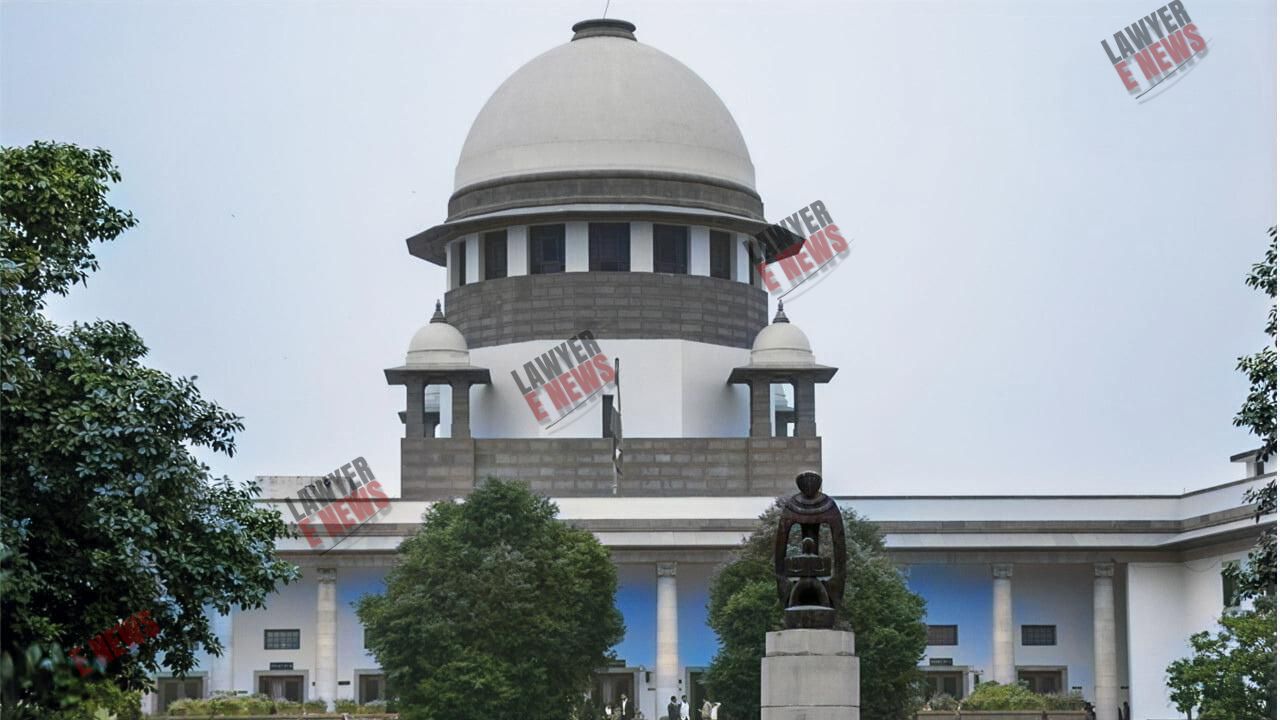-
by Admin
16 February 2026 1:47 PM



“Mere Presence of ICSSR Nominees in Governing Body Does Not Amount to ‘Deep and Pervasive’ Control” - Supreme Court of India delivered a critical judgment in the case of Indian Council of Social Science Research (ICSSR) vs. Neetu Gaur & Ors., overturning the decisions of the Punjab and Haryana High Court which had directed ICSSR to release grants for payment of salaries to employees of the Centre for Research in Rural and Industrial Development (CRRID). The apex court held that ICSSR was justified in withholding grants, and CRRID alone bears the responsibility to pay its employees, regardless of whether grants are released or not.
“There Is No Employer-Employee or Master-Servant Relationship Between Respondent Employees and ICSSR” – Supreme Court Clarifies Liability
The background of the case involves a dispute where 17 employees of CRRID approached the High Court seeking release of salaries which had been unpaid due to withholding of grants by ICSSR from April 2021 to March 2023. ICSSR had stopped funding CRRID following findings of grave irregularities, including appointments on the basis of fake degrees, misuse of funds, and violation of Grant-in-Aid Rules.
The High Court ruled in favour of the employees, holding that ICSSR had "deep and pervasive control" over CRRID, and hence, could not withhold funds at the cost of employee salaries. The Supreme Court, however, reversed this, holding: “It is a fact that the private respondents are employees of CRRID... but they cannot claim any right to salary from ICSSR, which is just a body providing grant-in-aid to their employer.”
“There is no employer-employee or master-servant relationship between respondents nos.1 to 17 and appellant–ICSSR.”
“ICSSR’s Control Is Regulatory, Not Pervasive”—Court Dismantles High Court's Finding on Institutional Control
The Supreme Court addressed in detail the High Court’s reasoning that ICSSR’s presence in the Governing Body of CRRID amounted to ‘deep and pervasive control’, and thus ICSSR was jointly responsible for institutional mismanagement.
Rejecting this reasoning, the Court held: “Presence of one or even two members of ICSSR in a Governing Body of twelve does not amount to ‘deep and pervasive’ control.”
“Even guiding, controlling or regulating affairs of an institution will not be called a ‘deep and pervasive’ control.”
The Court noted that CRRID’s Governing Body had the authority to reject nominees from ICSSR without assigning any reason, reaffirming the autonomy of CRRID as a private society.
“Grant-in-Aid Cannot Be Claimed as a Matter of Right” – Court Upholds ICSSR’s Discretion in Releasing Funds
Reiterating the legal nature of the grants, the Court examined the ICSSR Grant-in-Aid Rules, observing:
“Grants by ICSSR are discretionary... Rule 11 explicitly states that ‘all grants under these rules are discretionary and cannot be claimed as a matter of right.’”
“ICSSR is not bound to release the grant in favour of CRRID and the employees of CRRID have no master-servant relationship with ICSSR.”
The Court noted that CRRID had failed to comply with multiple directions, issued over several years by ICSSR, and had not even challenged the withholding of grants legally.
“CRRID Has Its Own Funds and Cannot Shift Salary Burden to ICSSR” – Supreme Court Directs Institution to Pay Dues
While acknowledging the hardship faced by the employees, the Court emphasised:
“Ultimately, the responsibility to pay the salary to its employees lies on CRRID and not on ICSSR or Government of Punjab.”
It directed CRRID to release the salaries withheld from April 2021 to March 2023 within three weeks, from its own resources:
“If CRRID fails to release this amount... ICSSR shall withhold all further grant-in-aid in favour of CRRID.”
The Court also observed that CRRID had other funds from projects and research work, and therefore could not argue inability to pay employees.
This decision draws a clear legal boundary between regulatory control and functional liability, reinforcing that grant-giving bodies like ICSSR are not liable for institutional misgovernance of recipient bodies. It protects public funding discretion and reaffirms the autonomy of private institutions, while ensuring that employees are not left uncompensated by requiring their actual employer to fulfill its obligations.
Date of Decision: 20 March 2025
